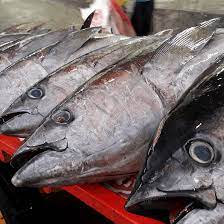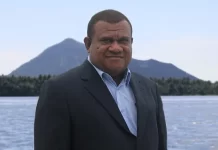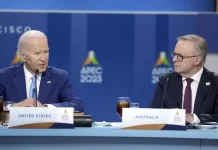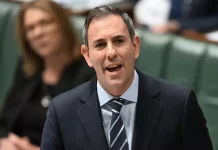The first-ever Fiji Tuna Symposium, co-organised by the Ministry of Fisheries with the Conservation International Fiji, Fishing Industry Association, and World Wildlife Fund has successfully concluded with a wealth of common issues and opportunities outlined in a Partnership Statement that will guide further development of the Tuna Industry.
The draft Partnership Statement is now in the development process with all partners and will incorporate the richness of the discussions that have come out from the two-day robust symposium.
At the Symposium’s conclusion, Permanent Secretary, Fisheries and Forests, Atelaite Rokosuka addressed attendees, emphasising that “it is crucial that the Fiji Tuna Partnership Statement are endorsed at a national level through a high-level conference declaration.
“We have heard and agreed on key issues under the Partners Statement – these issues are based on the deliberation over the last two days, and I wish to congratulate you all for your collaborative action and also challenge you all to continue this spirit of collaboration and partnership to improve efficiency of the tuna industry.”
Rokosuka said the outcomes from the Fiji Tuna Symposium will also “feed into the vehicle to progress the Fiji’s national commitments to extending the effective management of its ocean resources and exploitation.”
“Equally important is progressing the ocean management work to support Fiji’s national 30 percent and 100 percent sustainable management commitment as highlighted in the Fiji National Ocean Policy, Climate Change Act 2021, the Fiji National Biodiversity Strategy and Action Plan 2020-25 and other key national documents and frameworks,” emphasised Rokosuka.
“Among these are the increasing depletion of fisheries resources and associated by-catch and habitat impacts; the threats to marine biodiversity, including negative impacts of climate change and disasters; and the need to mainstream a rights-based approach and to promote greater recognition of gender issues within the sector.”
President of the Fiji Fishing Industry Association, Radhika Kumar said she is looking forward to further formulating the 3-year Partnership statement with the respected agencies.
“We remain optimistic that the 2-day symposium has fostered robust pledges for collaboration in advancing Fiji’s tuna industry, we eagerly anticipate partnering with the Fiji government, Conservation International, and WWF to further develop the partnership statement in addressing the industry’s needs and have wide consultation on any potential policies in regards to the management policy for the marine ocean space.”
“The two-day discussion was highly engaging and fruitful, successfully showcasing Fiji’s domestic industry potential and the Fiji Fishing Industry Association’s role – we hope this has heightened awareness about our identity and purpose.”
Conservation International Senior Director, Pacific region, Susana Waiqanibete-Tuisese said the Fiji Tuna Partnership Statement “serves as a milestone for Fiji’s tuna fisheries sector, promoting the integration of policy and market based strategies to improve economic, environment and social performance of seafood production at jurisdictional scale”
“The draft Partnership Statement will guide next steps to further develop the Tuna Industry over the next three years in alignment with support from the Ministry of Fisheries and Forest, Conservation International and World Wide Fund,” said Waiqanibete-Tuisese.
The symposium brought together key stakeholders, including government representatives, private sector leadership, NGOs, and civil societies, to discuss and progress Fiji’s highly competent tuna industry and institutionalised domestic fishing fleet. The robust discussions centred around three main themes: 1) identification of issues and opportunities in Fiji’s tuna industry, 2) highlighting human rights dimensions, challenges, and opportunities for Fiji’s tuna fisheries, and 3) improving the economic and environmental performance of Fiji’s tuna fisheries.
The Ministry of Fisheries and Forest has also committed to completing the Fishing Industry Crewing Policy by June 2023, focusing on the triple bottom line of environmental, social, and economic drivers of development in Fiji.
“The government will continue to support Fiji’s tuna fisheries in improving financial performance, market-based approaches, and diversification of the tuna industry while maintaining sustainable fishing certification under the Marine Stewardship Council,” said Rokosuka.
“[We will continue to] adopt and implement coastal fisheries improvement plans nationally in an attempt to link small scale fishers and industrial tuna fisheries – a new dimension to improve the performance of domestic pelagic fishery fleet.”
The Fiji Tuna Symposium has successfully set the stage for collective action and ongoing collaboration to improve the efficiency of the tuna industry while emphasising the triple bottom line of economic, environmental, and socially responsible development.
SOURCE: CONSERVATION INTERNATIONAL/PACNEWS















